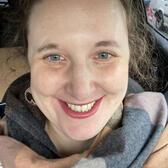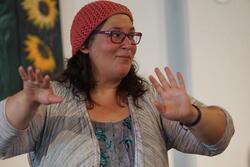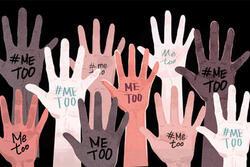Bettina Aptheker Saved My Life
Content Warning: This piece includes references to childhood sexual abuse.
When I say Bettina Aptheker saved my life, I’m not exaggerating.
I met Bettina when I took her trademark class, Introduction to Feminist Studies, the first quarter of my freshman year at University of California–Santa Cruz.
Up to that point, my exposure to Judaism had primarily been through the lens of a young woman whose queerness, transness, intelligence, and fiery nature took me afoul of the Jewish leadership I encountered. I’d grown up in a Conservative synagogue governed by older white men. I’d only ever seen men lead while women followed. I’d witnessed the Jewish women in my life grow angrier and more bitter at the limitations sexism put on their lives as the years passed, while the male leadership seemed to glide into power and stay there regardless of their competence or their ability to build healthy communities. I longed for relationships with other Jewish women that were not built on cruelty and competition for the attention of men who always seemed to hold us in contempt. I longed to experience mentorship from a Jewish woman who could truly see me, not as evidence of her own aging or as a threat to her low-level power, but as a pupil she could guide and learn from.
In Bettina, that is exactly what I found. I found a new way to be Jewish, and a new way to be a Jewish woman. Bettina was the first Jewish woman I had ever met who was unashamed of her own queerness. She had broken faith with the patriarchal traditions that had shaped my entire relationship to Judaism up to that point, and not only lived to tell the tale, but seemed to have thrived. She’d raised a son she loved, left her husband, married a woman she adored, and carved out her own life path as a professor of women’s studies at one of the top universities in the country. I was so proud to know she was a member of my community. At the time I took her class, I felt afraid of everything, and it was so inspiring to know that I could drop those fears and carve out the life I wanted for myself instead.
In Bettina, I also found the mentor I had always longed for, someone who would encourage me to use my power and raise my voice, rather than find my words threatening .
When I started my freshman year at UCSC back in 2006, I was in over my head. The campus seemed giant after my tiny progressive high school filled with freaks and geeks like me. I’d chosen my high school to get away from the bullies and rich kids that made my middle school experience hell. I’d chosen UCSC because it was the closest thing to my high school that I could still afford. My parents, who could and did pay for fancy vacations to Europe, had chosen not to save money for my college education. I had spent my entire high school working for the chance to flee from my parents, only to end up less than three hours’ drive away.
To cope with the injustice, I did what I always did. I swallowed my feelings. I pretended like nothing was wrong. I developed another pathology. This time, I started starving myself.
A nonfat latte in the morning and a muffin on “cheat” days. Nothing but Luna bars the rest of the day, except maybe a container of cottage cheese or an apple. Always at the gym. I lost 40 pounds that first semester, 15 the next. I got pneumonia in winter, probably the result of wearing myself down, always pushing myself further towards the ideal weight, the point where I promised myself I would stop.
It wasn’t that simple. There were voices in my head that year. There were ghosts in the walls, and everywhere else too. I’d read The Prince of Tides, a novel about a man who had forgotten his childhood rape, and his sister, the poet, who developed schizophrenia because no one in her family would validate her memories.The book haunted me. Something about it felt familiar. I had been reading about childhood trauma, childhood sexual abuse specifically— for years, drawn to story after story of girls being raped in the homes they grew up in. I’d read novel after novel, sitting next to my parents on airplanes or at dinner parties I was dragged to as a requirement of being their daughter. I couldn’t stop reading books about abused girls.
Three hours’ drive was enough, I thought. Enough to make me feel safe.
I was looking forward to taking Bettina’s class. I’d taken a Gender Studies class in high school, and it had quietly changed my life. Thanks to that class, I had started to pay attention to the rhythms of abuse and violence in my biological family, to my physically tiny, intimidated mother, to my father who communicated by screaming or stonewalling. That class had helped me locate my true self; I figured this class would be no different.
I was right, and I was also wrong. The class did more than that.
When Bettina got up to the podium that first day, I thought she looked like an elf from Lord of the Rings, wise and otherworldly. She looked like no other woman I had ever met. Her features were harsh and triumphant, the expressions moving across the landscape of her face easily, with a self-confidence I envied. I thought, That is what a grown-up woman looks like. How do I learn to be that unafraid?
Over the weeks, Bettina talked to us about things that no woman I knew had ever dared to mention: Sexual assault. Eating disorders. Beauty. We read selections from Naomi Wolf’s The Beauty Myth, and I understood triumphantly that the beauty ideal in my head was a means to control me, to keep me distracted so I would not rebel.
That realization wasn’t enough to make me drop my eating disorder completely, but it was enough to make me begin to fight back, to question why I was doing something I didn’t believe in. It was enough to make me drift away from the friends I’d found during the first weeks of orientation, to find friendships that were more difficult, but deeper. Like with Valerie, whom I met in Bettina’s class, and whose apartment I sat in, nude from the waist up, as her friend Madison painted colorful spirals on my back. In my relationships with these women, I felt the goddess appear in my life for the first time. These women were who I wanted to be, and for the first time in my life, I felt supported, held, safe.
The next week in class, Bettina told about her life as a queer woman. She had left her marriage and was now happily partnered, happily living with a blended family. I found myself picturing Madison’s face, thinking about queer family, queer love.
Later that week, I went on a date with a young man from my science class who had been pursuing me for a few weeks. He tickled me and wouldn’t stop when I told him to. I thought, I am not consenting to this. Later, we watched the film V for Vendetta. When a scene with two lesbian women came on screen, he kissed me. The woman on screen said, “I knew hers were the only two lips I wanted to kiss.” I thought, I don’t want to do this anymore. I told him to stop kissing me. I went home. I never went out with him again.
That whole semester, I saw ghosts in the walls. I wasn’t sleeping. I wondered if I was going crazy. I was too afraid to talk to a therapist, afraid they would confirm that I was. I didn’t know how to understand my surfacing memories. I thought perhaps they were fantasies, as Freud told so many women. I thought the memories were impossible, that I must be making them up, because how could my parents do such a thing?
Then, that semester, Bettina’s book came out. Intimate Politics: How I Grew Up Red, Fought for Free Speech, and Became a Feminist Rebel. I bought that book the week it appeared in the college bookstore. And with that, I began to understand why I had chosen UCSC, instead of one of the fancy East Coast schools I’d been accepted to, the kind of place I had always seen myself fleeing to escape the memory of what had happened to me. Instead, I was here to learn how to make my way into the center of my being and understand myself. I was here to learn how to come home.
In her book, Bettina writes about being abused by her father. She breaks the taboo on the subject of child sexual abuse, which at that point few people were writing about in mainstream memoirs. Bettina’s father was an important racial justice leader and activist. He was also a high-profile Jewish community member and a leader in our community.
In the world in which I’d grown up, calling out Jewish leaders for abuse was unheard of. I had always been taught that my fate, and the fate of my community, relied on treating Jewish leaders—who were invariably male—as godlike and perfect. I had learned early on that criticizing Jewish men for their behavior was unacceptable, no matter how badly they treated me. I had learned that my value to my community lay in keeping silent. That attitude is what I had been rewarded for, by both Jewish men and women. That behavior is what I had been taught was expected of me, as a child of a minority community. I had learned that to draw negative attention to my community was an act of betrayal that would lead to my being cut off from my community, disposed of.
The idea that a child, especially a female child, had value in her own right, not simply for pleasing her parents or her elders or the leaders of her community, was a new idea to me. In particular, the idea that I could be Jewish, could love my Jewish ancestry and culture, without sacrificing my own well-being or my right to fight for myself? That idea saved my life.
People are complex and can be so many things at once. Bettina wrote of the pride and compassion she held for her father, and she nonetheless spoke out about his abuse. Integrating love with accountability is the kind of example we all need.
Seeing Bettina, someone I deeply admired, write about this topic gave me the courage to face this part of my own life, because it made me see that someone who had experienced this trauma might also have a future. It made me see that despite living through this hell, Bettina had gone on to have a child, build a career, write a book, and teach undergraduates. It made me see that this experience of abuse need not condemn a person to madness or to being unloved forever.
The ghosts in my head did not entirely disappear after that. But I began to know them by name.
Six months after finishing Bettina’s book, I was walking in the woods on campus when the memories split my body open all over again. I burst into the tears of a child who has been betrayed. I cried for as long as I needed to, and then called Madison. She came and sat with me awhile; then Valerie came and took her place. After crying for over two hours, an eerie calm settled over me. I turned to Valerie and said, “What if I’m making it up?”
Valerie spoke, but it was Bettina’s words from our Introduction to Feminist Studies class echoing in us all. “I don’t think you can make up pain. If pain is there, it’s for a reason.”
Those words have become the anthem of my life. Pain is there for a reason. Pain does not come from nowhere. Pain is a trustworthy presence in your life.
Pain went from being the greatest threat to the greatest friend. That alchemy, and the ability to perform it, was a lesson we’d learned from Bettina’s class.
There are many other things I could tell you about Bettina. I could tell you about her commitment to racial justice, her determination to integrate the voices of marginalized women into her classroom texts. I could tell you about how she delivers lectures on queer Jewish leaders to her local synagogue, and how she fought for Jewish Studies to be added to the UCSC course curriculum.
What I really wanted to tell you is this: I would have died, but I met Bettina and took her class, and I didn’t die. That just seemed the most important thing.
As someone raised with a culture of silencing female victims at the hands of both elders and Jewish leaders with power, witnessing a Jewish woman defy these efforts to silence her was tremendously inspiring, even life-giving.
That is the message I hope to pass on: that a woman, a survivor of abuse by a Jewish figure, can speak out about her experiences, can survive the hostility that will inevitably be directed at her, and that she can maintain her connection to the Jewish community and become a Jewish leader herself. We don’t have to sacrifice our Jewishness to keep our voices. We don’t have to sacrifice our past to preserve our future.
We can have both. We can be both.








Didn't Bettina also have a daughter?